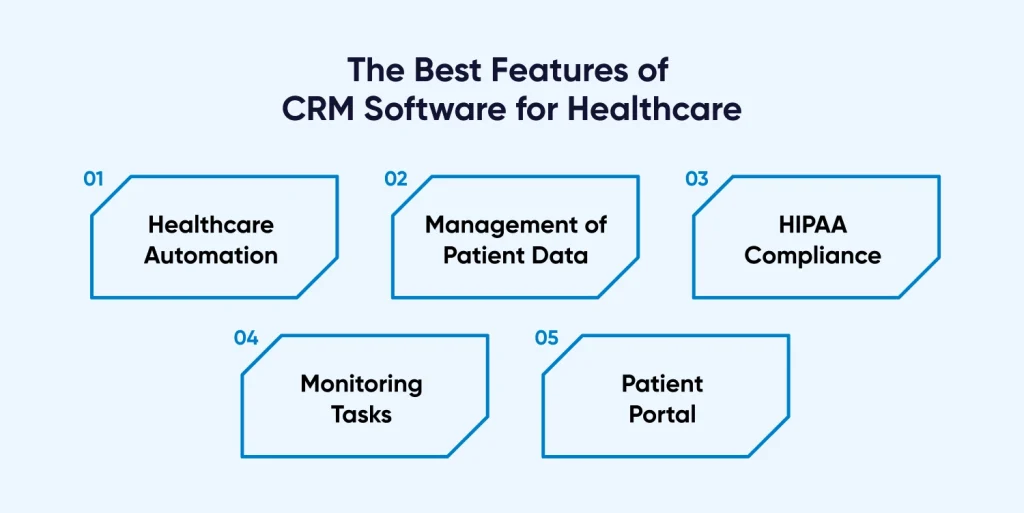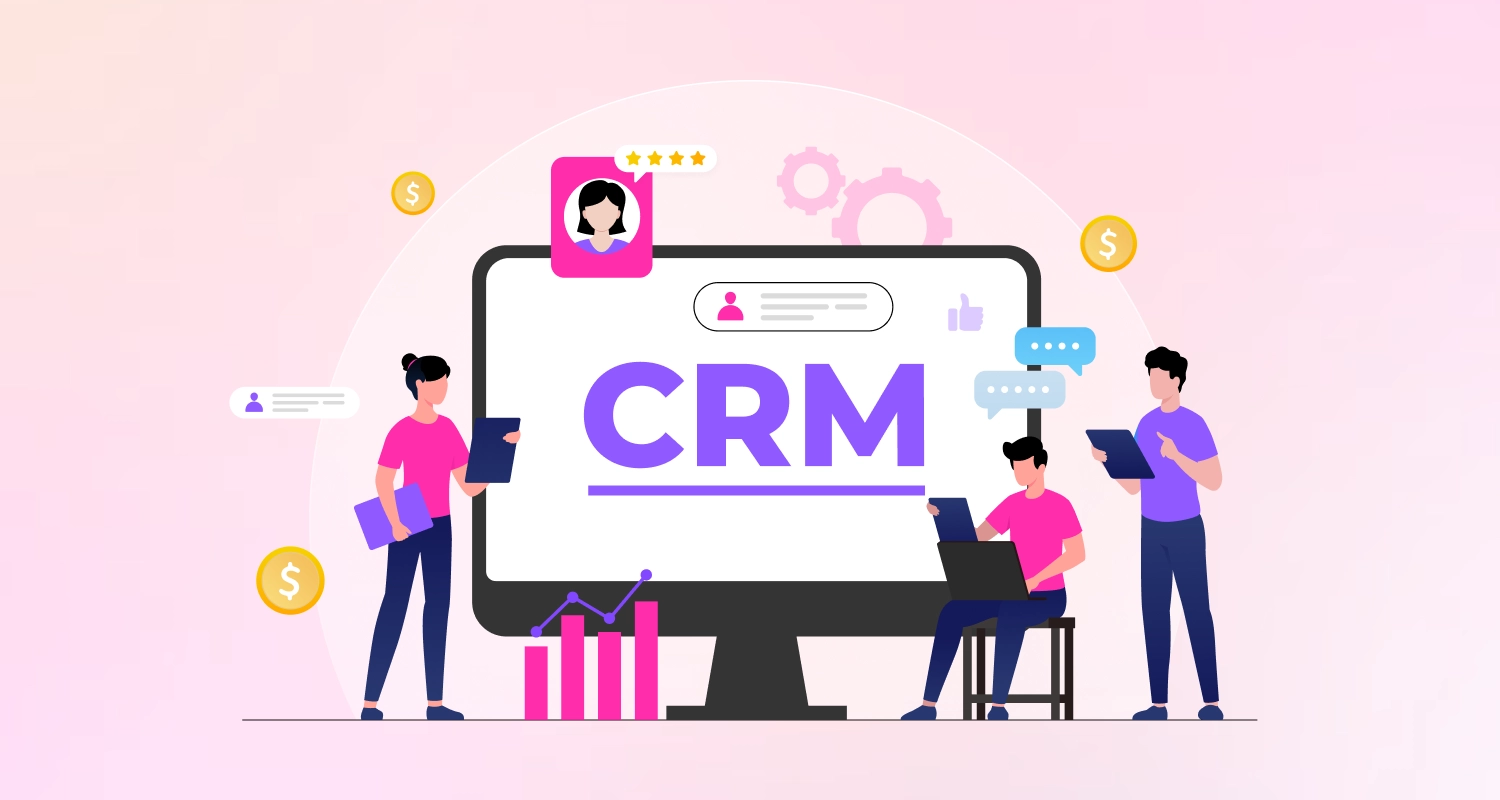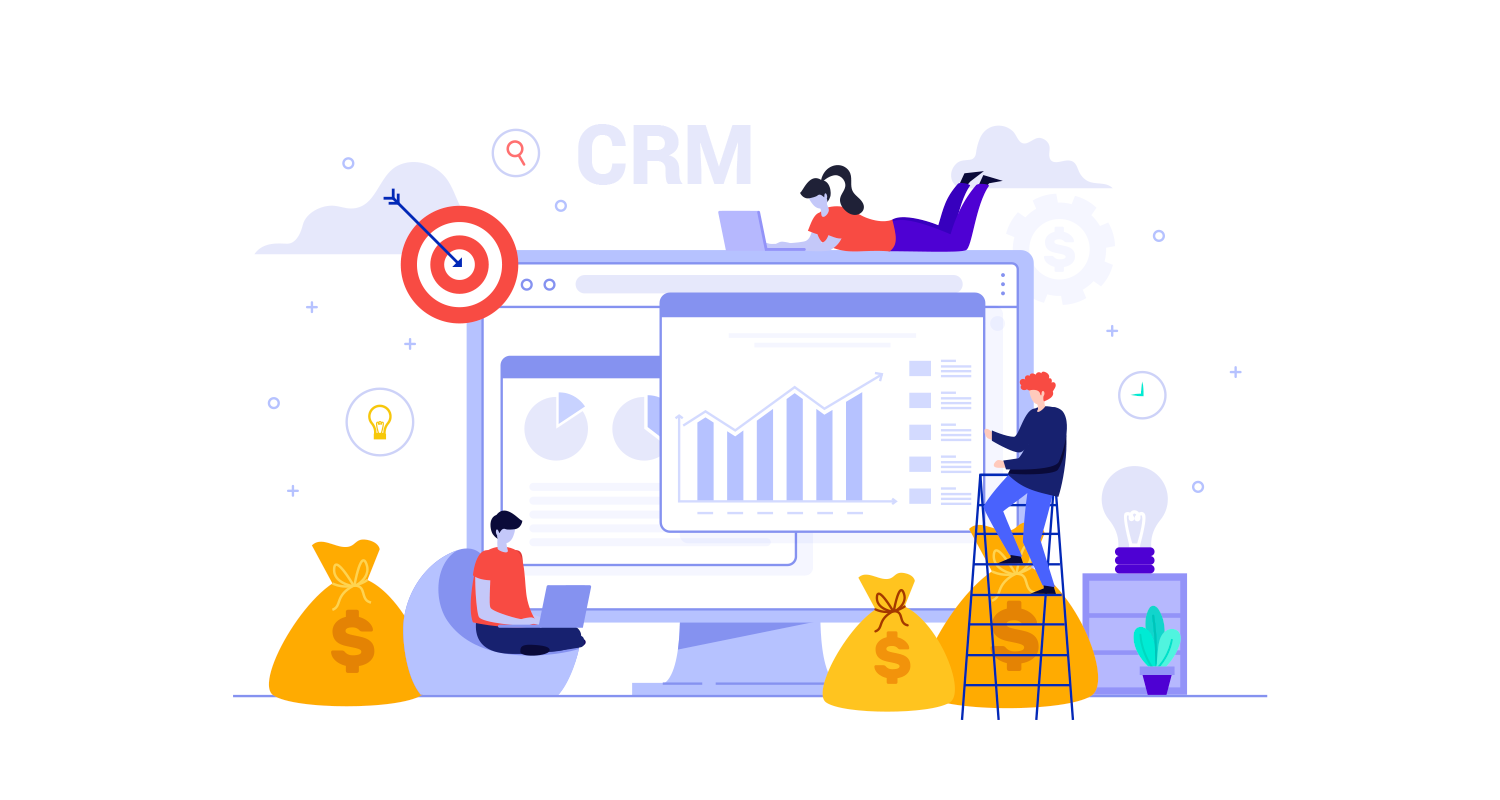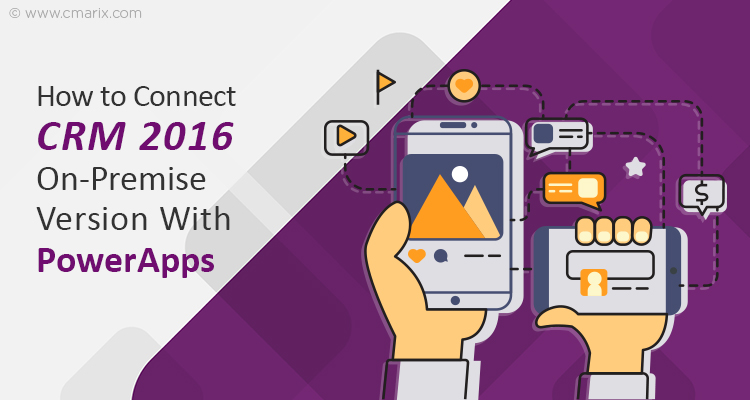Customer relationship management software for healthcare organizations is booming and is expected to reach USD 12.5 billion by the next year.
If you are a healthcare startup, you know that maintaining hospitals and managing patients may be daunting, and the solution to this challenge is CRM healthcare software. CRM includes everything you need, from improving medical and patient care to simplifying administrative duties in your office. With the help of a healthcare software development company, you may succeed in it.
We have expertise in creating healthcare software with various features and levels of complexity, and this guide will teach us how to design medical CRM software with more specific information on how to create healthcare CRM hospital software that adds value if you are planning to build a medical tech startup.
What is CRM Software for Healthcare?
Healthcare CRM systems are incorporated in hospitals or healthcare organizations for seamless interactions and management between patients and healthcare providers. This helps to improve and streamline the healthcare operations. Also, the ability to provide data-driven insights is a key component of healthcare CRM software. To help healthcare businesses better understand patient behavior, provider performance, and operational efficiency, the program generates reports and analytics.
Types of Customer Relationship Management in Healthcare Industry
In general, the majority of CRM software fits within these categories.
- Analytical CRM– Medical professionals can obtain important insights from treatment records, patient journeys, and other data gathered over time by using analytical CRM.
- Collaborative CRM– Using this leads to easy communication between hospital departments and establishes more connections and strong relations between patients, customers, vendors, and partners.
- Operational CRM: This type of CRM in healthcare helps to alleviate issues and challenges faced by medical professionals, including nurses and doctors. You can learn more about types of healthcare software in our previous blog.
Top Benefits of Healthcare CRM Software Development
Similar to several other sectors, like telemedicine, travel and tourism, hospitality, and so forth, healthcare CRM makes a lot of money only by comprehending clients’ basic behavior. Simply put, a healthcare organization can benefit greatly from a deeper understanding of its patients. We’ll discuss the advantages of using healthcare CRM software below.
Easy Patient Data Management
At the core of patient data management lies the CRM software for the medical industry that simplifies patient scheduling and information. Cloud computing and HIPAA-compliant software make centralized data transfer safe and possible. This enables patients to bypass lengthy lines at medical facilities, schedule appointments online, and take advantage of telehealth options.
Ensure a Seamless Patient Experience
These characterize a good patient care lifecycle, but personalization is also made possible by creating your own healthcare CRM software. Clinics can tailor recommendations and messages for various patient groups thanks to the software’s data analytics features.
Simplify the Patient Records Administration
To guarantee that patients receive the appropriate medical consultation, treatment, and follow-ups, well-managed patient records are crucial. Healthcare CRM software is about merging them into a single system rather than keeping them as a separate database. Across departments, large medical institutions can obtain updated patient records in real-time.
Monitoring Patient Appointments
The technology can determine whether the patient has scheduled an appointment. This will make it easier for the medical staff to contact the patient and help them continue their therapy without skipping any appointments. Such a great approach will assist the healthcare company in avoiding financial loss and patient health problems.
24/7 Support
You will all acknowledge that human availability may differ. CRM chatbots can therefore be of great use to patients at any time, as they offer vital medical advice to patients 24/7.
Data Security
We know the enormous volumes of confidential patient data that healthcare institutions collect. This information makes medical facilities more vulnerable to malware attacks and data breaches. By using a trustworthy CRM system, you can ensure that user information is safe and secure. Healthcare CRM systems that are well secured will prevent from any data breach to ensure patient’s data and safety measures are taken.

Healthcare CRM Software Development Process Simplified
The process of developing CRM software for the healthcare sector is methodical. Make sure the CRM addresses the unique demands and requirements of healthcare businesses. The following are the essential steps for developing healthcare CRM software:
Collection and Analysis of Requirements
Collecting requirements is the initial step in the creation of CRM software for the healthcare industry. This entails involving important parties such as IT teams, administrators, and clinicians. Understanding their objectives, problems, and CRM system needs is the aim.
To determine key features, functionality, and required integrations, the employed healthcare CRM software development team performs user research, workshops, and interviews. To complete the CRM solution design, they also examine industry standards, legal mandates such as HIPAA, and developments in healthcare technology.
Architecture and Design
The next step post-analysis is to design the software for seamless healthcare CRM software development. The front-end, back-end, database structure, and other points of integration for the healthcare IT system are defined in this stage. The UI/UX is designed to meet the business needs and ensure it is user-friendly, effective, and customized for patients, and healthcare providers.
Choose the Right Healthcare CRM Software Development Partner
As the entrepreneur of a medical firm, you will need to focus on other aspects of your company. Working with a reputable CRM software company, you can hire dedicated CRM developers. You can cut the time to market and, frequently, the cost by working with a group of experienced developers.
For healthcare technology companies, our developers, designers, and quality assurance specialists assist in creating profitable products with product market fit and quick scale-up teams. Our client’s impressive success and our long-term collaboration are the consequences of our industry expertise and customer-centric approach to healthcare CRM software development.
Test, and Deploy
Developers test the program multiple times and at various stages to guarantee the CRM is stable. Before launching the CRM, they also included user input and made the required adjustments. To resolve teething problems and implement further enhancements after deployment, you will want continuous, strong support from the development team.
Continuous Maintenance
After initial deployment, ongoing maintenance creates a support staff to handle technical problems, bug fixes, or inquiries. As the industry evolves, they manage a change management procedure for software upgrades, enhancements, and regulatory compliance.
The Best Features of CRM Software for Healthcare

If you’re trying to integrate CRM software as a healthcare practitioner, you have a lot of possibilities. Once more, the decision is yours. You can choose the best CRM software for the healthcare industry that fits your business’s requirements. Nonetheless, a few essential elements are required of any CRM in the healthcare sector.
Healthcare Automation
You should be aware that healthcare CRM increases worker productivity by streamlining administrative operations management and automating the entire healthcare system. A medical CRM system can help you in the future, help you handle more patients accurately, and help you make your clinical practice a little more efficient.
By closing the gap of late payments, a patient management system can improve medical billing and payment processing.
Management of Patient Data
One of the most noteworthy features of the CRM software is the ability to manage the patient’s data which is of utmost importance. With only a few clicks, doctors may access real-time data from several sources using healthcare CRM solutions. Physicians can swiftly develop bespoke reports and visualize cases.
HIPAA Compliance
To research patients, monitor them, manage medical billing, streamline workflow, record cases, and enhance patient involvement, the majority of healthcare businesses use healthcare software solutions. The patients may be reluctant to provide their personal information or make their EHR software development for healthcare open to the public. Furthermore, people have complete control over their security, privacy, and health information. Since CRM handles sensitive patient data, it must comply with HIPAA regulations in the healthcare sector.
When choosing, make sure HIPAA Compliance incorporates automated data backup, scalability, and data access protections.
Monitoring Tasks
It is important to remember that promotional efforts expand in tandem with an organization’s size. A lot of you are probably wondering what the secret to effective marketing and promotions is. One of the better approaches would be to build a relationship with the clients.
It may be necessary to use complex advertising to establish rapport, which surpasses long-term tactics. In other words, for a larger campaign, each person in the advertising department will have to perform specialized roles.
The CRM software keeps track of every assignment and offers continuous progress updates. By doing this, you will only agree to manage and modify all marketing strategies.
Patient Portal
It is one of the characteristics that gives the patients full attention. Building relationships and trust between patients and healthcare professionals is the main goal of a healthcare CRM. One of the greatest options will be a feature that solely concentrates on the patient. It makes it easy for users to check their medical records and access patient portals from anywhere. Patients have access to their test results, scans, medical history, and consultations.
Furthermore, having access to the most recent health information makes people more conscious of their medical concerns. Better patient-doctor interaction will also be facilitated by the feature.
Conclusion
Particularly in the healthcare sector, CRM has become one of the most crucial necessities. Medical businesses may increase their income and lead generation with the support of the rapidly expanding healthcare CRM market. The healthcare industry can also incorporate personalized elements into their system with CRM’s assistance while maintaining awareness of their organizational requirements.
Being a top custom software development company, our professionals can help you save money and increase productivity through automation. CRM integration is your one-stop shop for making a lasting impact on your patients.
With 14 years of experience and understanding in the same field, we leverage technological know-how with creativity to create cutting-edge, HIPAA-compliant CRM software that aids in patient data management for the healthcare industry. To learn more about our approach, you can contact CMARIX to build CRM for hospitals, patients, and medical centers.
Frequently Asked Questions
How long does it take to develop healthcare CRM software?
System complexity, customization requirements, integration needs, and the technique (waterfall or agile) selected all affect how long it takes to design a custom healthcare CRM software. If you are looking for CRM software which is more complex, it takes approximately a year or more and simple CRM software would take about 3-6 months.
How can healthcare CRM software improve patient engagement?
By providing personalized communications, appointment reminders, access to medical data and test results, instructional materials, and secure provider messaging, CRM software for the healthcare sector empowers patients. Active patient participation and health management are encouraged by the increased convenience and communication.
How does CRM software benefit healthcare providers?
Effective healthcare data management enables and guarantees data security and privacy while making it simple to obtain current and accurate patient information. This gives medical professionals the ability to make well-informed decisions, offer individualized treatment, and guarantee continuity of care across many touchpoints.
Can CRM software be integrated with existing healthcare systems?
Yes, the existing healthcare systems can be integrated with the CRM software and we at CMARIX can help you with this. It protects patient data privacy by integrating with current healthcare systems with ease, offering customization choices, and guaranteeing strong security and HIPAA compliance.







